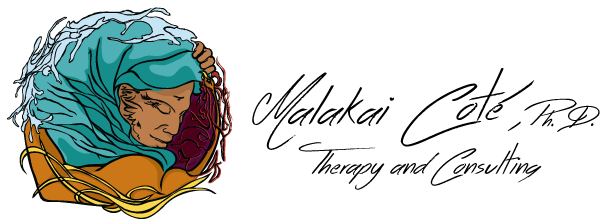Academic researchers are continuing to explore the experiences of risk and resilience for lesbian, gay, bisexual, and queer (LGBQ) community members with diverse ethnic/racial backgrounds. These are important areas of research to support life thriving for LGBQ individuals. Like all research, there are limitations. Researchers, however, can begin to center the experiences of diverse groups.
Below, I summarize the work of Velez, Cox Jr., Watson, & Flores who wrote an article entitled "Minority Stress and Racial or Ethnic Minority Status: A Test of the Greater Risk Perspective. This research article was recently published in the Journal of Psychology of Sexual Orientation & Gender Diversity. These researchers analyzed survey results for adult LGBQ folks from the United States.
*Spoiler Alert (If you do not want to read the entire blog post, read below):
- LGBQ people have a higher chance of struggling with mental health concerns when they: (1) are more frequently treated poorly due to discrimination because of sexual orientation, (2) feel less comfortable with themselves because of sexual orientation, and (3) anticipate being treated badly due to sexual orientation.
- Folks who are "out" as lesbian, gay, bisexual, or queer in multiple contexts appear to have higher levels of psychological well-being.
- Folks of Color and White folks did not differ in their risks of experiencing heterosexist discrimination.
What did the researchers want to explore?
The researchers wanted to determine the relationships between sexual minority stressors (i.e., heterosexist discrimination, expectations of stigma, and internalized heterosexism), the disclosure of sexual identity, and mental health outcomes for all participants. They also wanted to determine if People of Color and White folks experienced different levels of these stressors and if psychological distress and/or well being were different between Racial-Ethnic minority individuals and White folks.
What do these terms mean?
- Heterosexist discrimination: Experiences people have had in the last year where they felt threatened, harassed, and/or treated unfairly because of their sexual identity. Basically, people being mean and unfair because someone is gay, lesbian, bisexual, or queer.
- Expectations of stigma: People worried that they will be discriminated against because of their sexual orientation.
- Internalized heterosexism: People not feeling comfortable and confident about themselves because of their sexual orientation. For example, people might wish they were not gay, lesbian, bisexual, or queer.
- Disclosure/Outness: How open people are about their sexual identity to others at work, with family, with religious community etc.
Who Took the Surveys?
Researchers evaluated survey responses from 813 participants in the United States who identified as lesbian, gay, bisexual, queer and who ranged in age from 18 years old to 62 years old. Three-hundred and eighteen participants (39%) identified as people of color/racial or ethnic minority from a variety of cultural backgrounds. Most participants (55%) identified as cisgender women and 22% identified as cisgender men. This was also a predominantly middle class sample of participants.
What Did The Researchers Find?
When LGBQ people of diverse ethnic/racial backgrounds more frequently encounter heterosexist discrimination, anticipate being discriminated against more, feel less comfortable with their sexual identity, and are not "out" in multiple contexts; these folks have poorer mental health outcomes. Levels of these stressors, that are described above, did not differ for People of Color and White folks. Also, research participants' disclosure of sexual identity in multiple contexts was related to psychological well being.
What Do these research results Mean?
This research highlights areas of risk (i.e., what makes life more difficult) and a resilience factor (i.e., how people face and overcome obstacles). These research results highlight that sexual minority stressors erode emotional and psychological wellness. These are experiences traverse people with diverse racial-ethnic identities. Being a target of discrimination based on sexual orientation is highly stressful and distressing. Also, it appeared greater "outness" in a variety of contexts associated with higher levels of psychological wellness.
My Commentary
Heterosexist discrimination is real and has a psychological and emotional impact on LGBQ individuals. Stigma and internalized oppression can also have detrimental effects. The idea of outness can be very tricky. On one hand after disclosing their sexual identity, some individuals receive more social support from cherished others, may feel more free talking about their partner(s) and experiences in relationships, and feel better about being themselves. On the other hand, there can also be real emotional, psychological, and social safety risks for some people that range from fears of rejection to interpersonal violence. It is not just about disclosure or "outness." Social support, self-acceptance, and safety may also play a role. The study results did not evaluate the relationship between social support and outness, but one may surmise that receiving social support and care before and after disclosure may provide relief and greater closeness to others. The compounding impact of racism was not explored in the study and I wonder about the role of these intersecting oppressions in the lives of diverse LGBQ folks.
The real crux for change continues to reside with addressing and eliminating heterosexist discrimination. Gay, lesbian, bisexual, queer orientations and identities are normative human sexualities. Pathologizing and/or demonizing these folks contributes to hardships that are unnecessary given normative human diversity.
